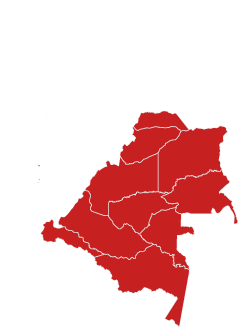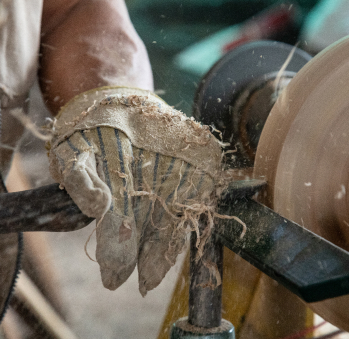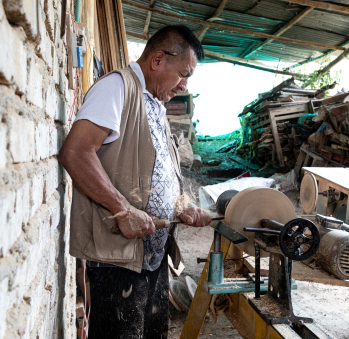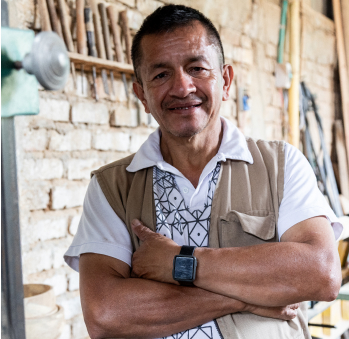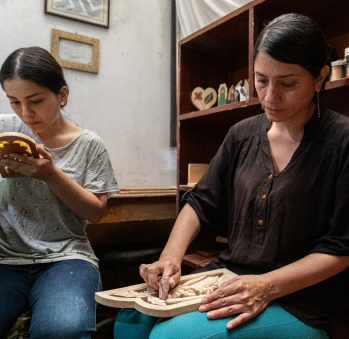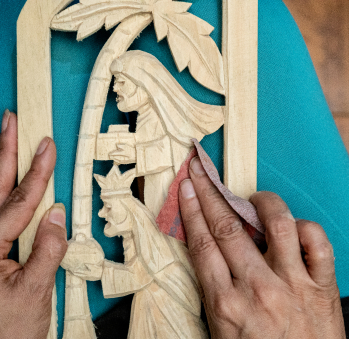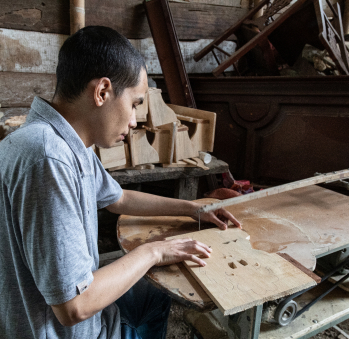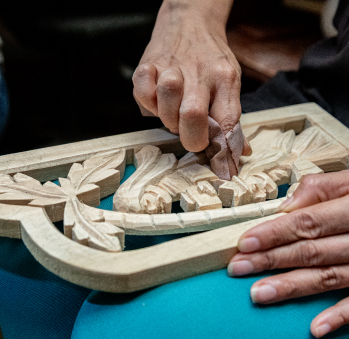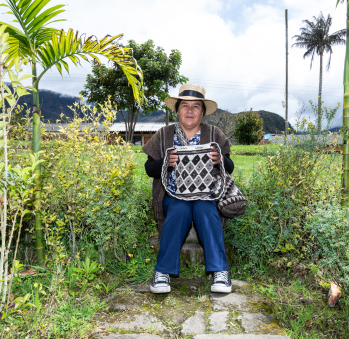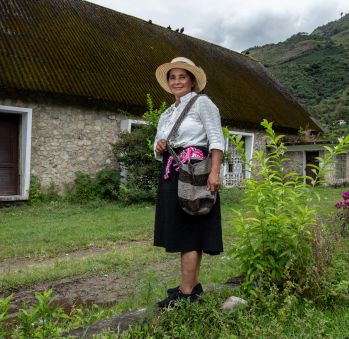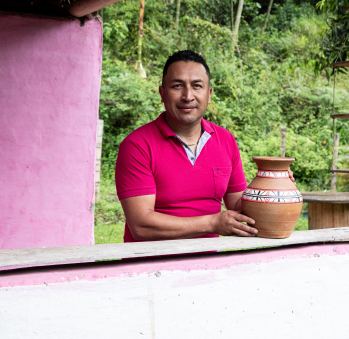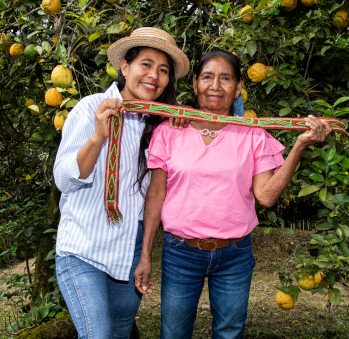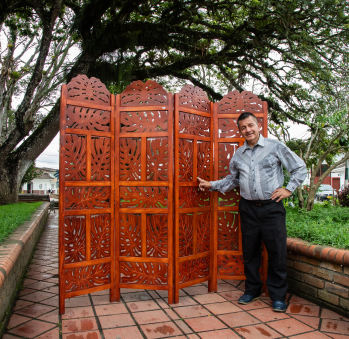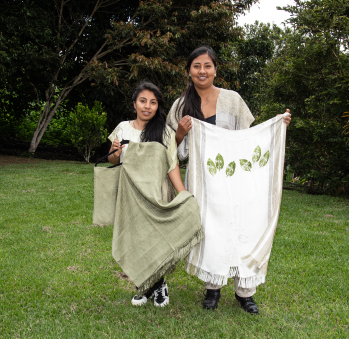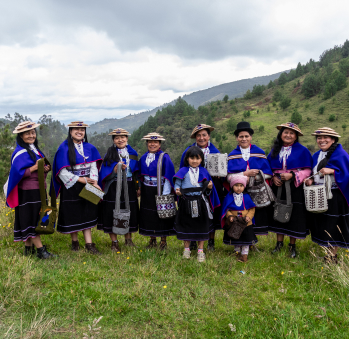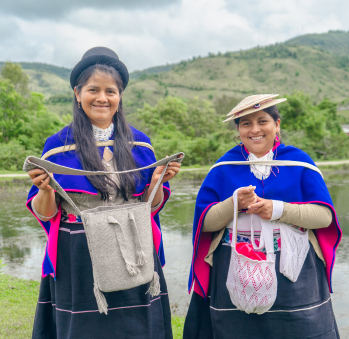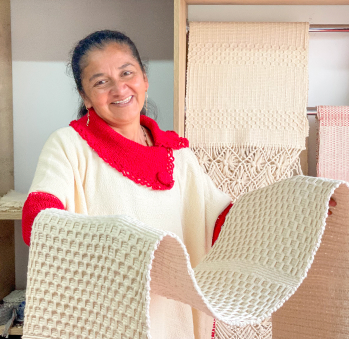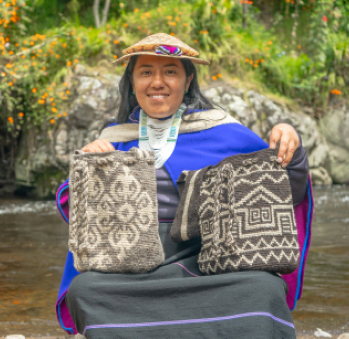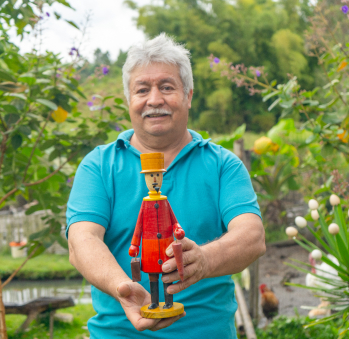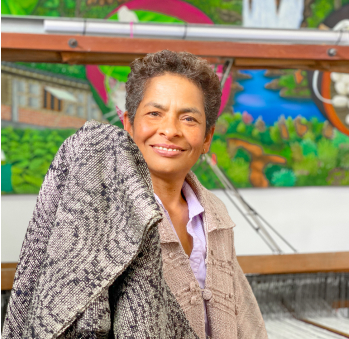Carlos Ovidio Jiménez
Workshop: Madearte
Craft: Woodwork
Trail: Popayán-Páez Route
Location: Timbío, Cauca
Carlos Ovidio Jiménez remembers perfectly the day he sold his first folding screen, back when he was 28. He had carved and fretworked it in Timbío, Cauca, and was hauling it on his shoulder down Bogotá’s busy Seventh Avenue when a man, right by the Parque Nacional, stopped him, excited, and bought the impressive four-panel piece without even asking for a discount. For Carlos, it felt like destiny calling him to a life devoted to wood—a stroke of luck. One that would repeat itself years later when, through a twist of fate and the request of a man who asked him to bring a screen to Expoartesanías, he arrived at the very fair that would go on to showcase Colombia’s finest artisans each year.
At the time, Carlos had never heard of Corferias, much less the crafts fair. Since the beginning of his career, his market had been the streets of downtown Bogotá, where he sold his monumental woodworks and even traded them for gold with the merchants on Jiménez Avenue, who used the screens in their offices to conduct business in privacy. His work didn’t sell much back in his native Cauca—people found it too expensive—but gold, on the other hand, was always in demand. It was a smart trade. But back to Corferias. That day, he arrived at the fair with the promise that someone would buy his piece. He walked in confidently under the iconic archway—who would question a man carrying something so beautiful? But once inside, he never found the man who had promised to buy it. He was left stranded and exposed. Eventually, he ended up in the office of Lucy Cajiao de Ruán, the director of Artesanías de Colombia at the time, who, rather than punish him with the confiscation others had threatened, saw an honest, trusting man who, above all, had created an extraordinary product. She invited him to return the following year—and to many other fairs after that. As we said, Carlos Ovidio is a lucky man.
But let’s return to the beginning. Woodcarving is etched in his childhood memories. It was his uncle Julio who started the family tradition of making folding screens. He sold them far away, always in Medellín or Bogotá. Carlos was taught to carve at the age of eight, and with that knowledge in his hands, he began his life. Many in the family learned as well and paid for their education with it. Today, eight members of his own family continue the craft in Timbío. He remembers carving soft, knot-free cedar from the Amazon as a young man, drawn to its “pastel, pinkish color,” even though sanding it released a bitter scent no mask could block. Today, that wood is banned, and trees like guayacán, oak, ash, and naranjo—found in his beloved Cauca—must be protected, after years of deforestation took their toll. Thankfully, they live near Cartón de Colombia and its endless pine plantations for paper production, and that’s where they now source their wood.
As the skilled draftsman he has always been, Carlos takes great pleasure in transferring his drawing talents to carving, fretwork, and woodturning—applying forty years of knowledge to each technique. He braces the wood against his chest and, with the force of his body, drives the gouge in to bring out balazo leaves, flowers like dahlias, bells, or sunflowers, tiny hummingbirds, or ornate arabesques. He says that when he surrenders himself to the wood, nothing bothers him, nothing worries him—everything becomes beautiful and possible. He enjoys teaching too, knowing it’s the only way to preserve the trade. For now, he’s delighted that his daughter, Lady Johanna, wants to carry on the legacy through design, and that his wife is teaching the neighborhood women the countless decorative arts of woodworking. With such a happy crew, his screens—and all the other pieces they now make using every last bit of wood—look just as joyful. Nothing goes to waste.
Craft
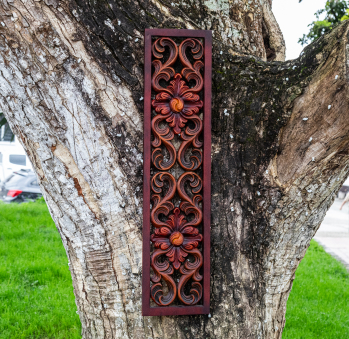
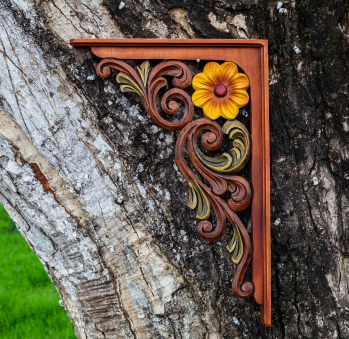
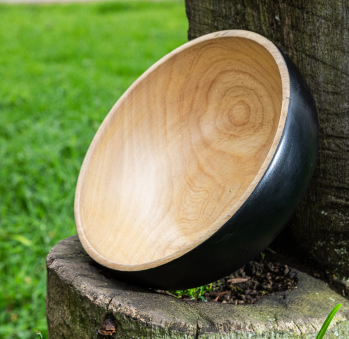
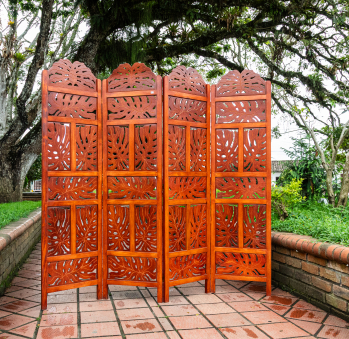
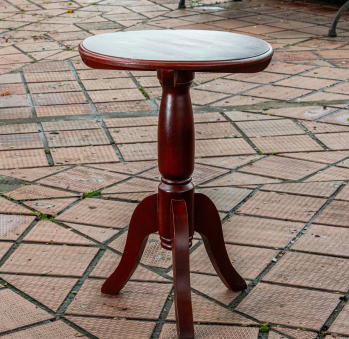
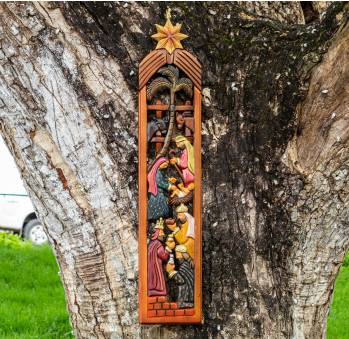
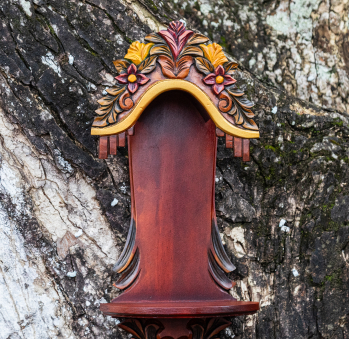
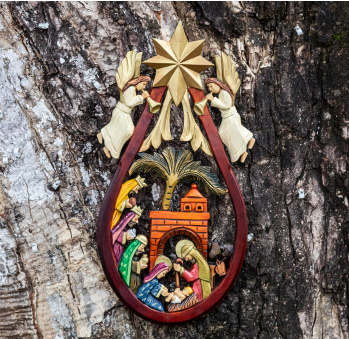
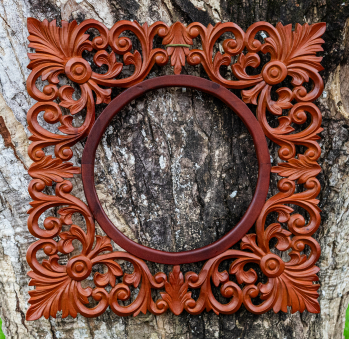









Artisans along the way
Artisans along the way
No puede copiar contenido de esta página

